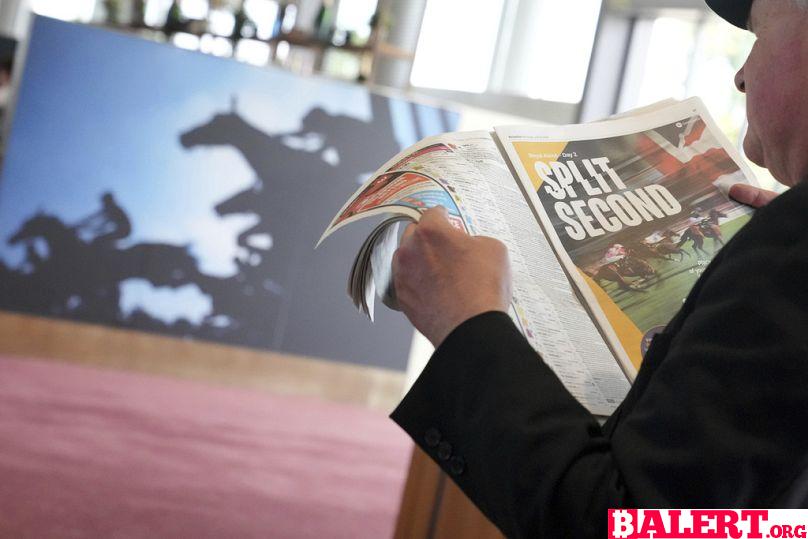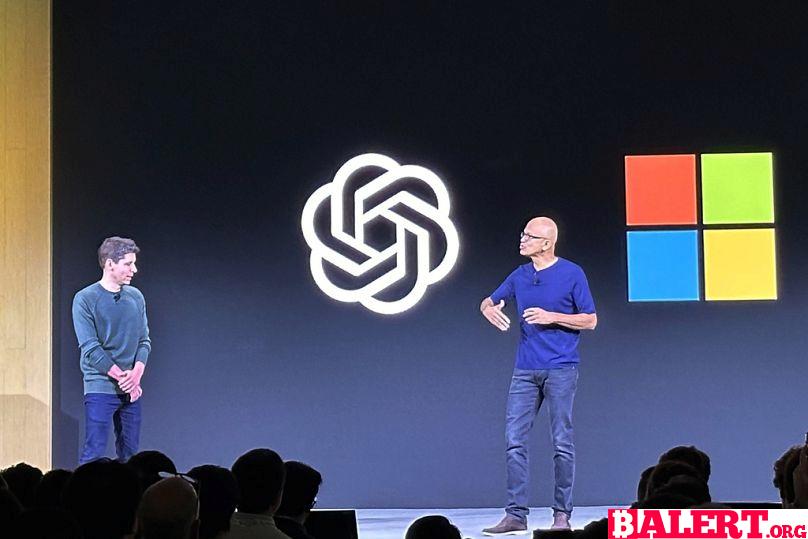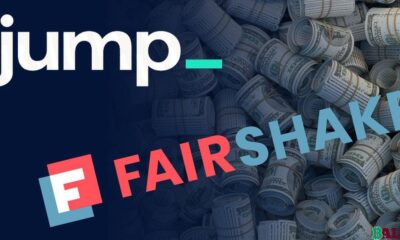World
OpenAI’s Partnerships with News Media: A New Era or a Risky Gamble?
Explore OpenAI’s partnerships with news media in this insightful analysis. Are these collaborations ushering in a new era of journalism or posing significant risks? Delve into the implications for media integrity and innovation.

OpenAI’s Lucrative Partnerships with News Media Giants

In recent months, OpenAI, the creator of ChatGPT, has been actively engaging in lucrative partnership agreements with some of the world’s largest news media companies. While the exact financial commitment remains undisclosed, estimates suggest that the total expenditures could reach into the billions. A notable example is News Corp., the parent company of the Wall Street Journal, New York Post, and Sunday Times, which recently finalized a deal with OpenAI worth approximately $250 million (€233.3m).
Other prominent publications such as the Financial Times, The Atlantic, Associated Press, Dotdash Meredith (which owns People Magazine and Investopedia), and Axel Springer (which owns Business Insider and Politico) have also entered into agreements with the Microsoft-backed AI firm.
What is OpenAI Gaining?
So, what exactly is OpenAI acquiring through these partnerships? The answer lies in the fact that online archives of these publications are incredibly valuable for training AI models. While much of this content could theoretically be accessed via web crawling techniques, such actions have historically placed OpenAI in legally precarious positions, opening the door to lawsuits. Thus, these agreements not only mitigate potential legal issues but also fortify the company against future copyright challenges.
Moreover, some of the deals grant OpenAI the right to display news content in ChatGPT responses. This move likely supports a forthcoming “search” feature that the company is reportedly developing, which, according to Bloomberg, would allow ChatGPT to scour the web and cite sources when responding to user inquiries.
The Press and Big Tech: A Complicated Relationship
At first glance, this appears to be a mutually beneficial arrangement: OpenAI gains a rich source of information for its models, while media companies receive much-needed financial support. However, the history of news media partnerships with tech giants like Google and Facebook casts a shadow of doubt over the sustainability of such relationships.
- On one hand, platforms like Google and Facebook have significantly boosted traffic to news websites. According to Cris Turner, Google’s Vice President of Government Affairs and Public Policy, “our products link people to publishers’ websites more than 24 billion times each month — for free — and we offer subscription tools and ad technology to help publishers monetize this traffic.”
- On the other hand, the digital advertising dominance of Google has severely curtailed advertising revenues for publishers, leading to a wave of consolidation and contraction in the industry.
Many are often surprised to learn just how quickly news outlets, particularly local ones, are vanishing. The Medill School of Journalism at Northwestern University reports that US newspapers are closing at an alarming rate of 2.5 per week as of 2023. This trend is mirrored in Europe, largely due to declining advertising revenues. In the UK, for instance, the newspaper advertising market fell to just £241m (€284.7m) last year, down from £2.5 billion (€2.95bn) in the early 2000s when Google and Facebook were still emerging forces.
The Future of Journalism: AI’s Impact

This begs the question: will AI replicate the disruptive effects of Google on the press? The answer might not be straightforward. With Google and Facebook siphoning off substantial ad revenues, many publications have had to pivot their business models towards alternative revenue streams, such as subscriptions and donations. The Guardian, for example, now derives a significant portion of its US revenue from reader contributions, which may be more resistant to AI encroachment compared to advertising revenues.
However, the implications of AI on journalism remain largely uncertain. Could we find ourselves in a scenario where people receive their news directly from ChatGPT, which curates information and generates insightful commentary on current events? If that were to become a reality, would digital newspaper subscriptions decline? And will the financial influx from OpenAI’s partnerships be sufficient to sustain these publications?
Furthermore, what will happen to those news organizations that have not negotiated licensing agreements with OpenAI? As these questions loom, it may be prudent for the media sector to reconsider its approach. Some industry leaders suggest following the New York Times’ example and pursuing legal action against OpenAI for utilizing their content without adequate compensation. Alternatively, they might wait for governmental interventions like Canada’s Bill C-18 or Australia’s News Media Bargaining Code, both of which successfully pressured Big Tech to compensate journalists for their work.
Nevertheless, sitting idly while competitors engage in lucrative partnerships with OpenAI is hardly a wise business strategy. Thus, one cannot entirely blame media companies for accepting these financial arrangements.
As Nicholas Thompson, CEO of the Atlantic, articulated in a LinkedIn post, “I’m absolutely convinced these deals can be beneficial if we’ve learned the right rules, structure them the right way, and hedge our bets. The lesson of the last decade for media isn’t to avoid the tech platforms — it’s to make the right deals and the right bets.” Yet, with the boundless uncertainties surrounding AI, it remains to be seen whether these partnerships will indeed yield the desired outcomes for the media landscape.
Jonah Prousky is a Canadian freelance writer based in London. His work has appeared in several leading publications, including the Canadian Broadcasting Corporation (CBC), Toronto Star, and Calgary Herald.
At Euronews, we believe all views matter. Contact us at view@euronews.com to send pitches or submissions and be part of the conversation.
World
Dominique Pelicot Testifies in Harrowing Rape Trial
Join us as Dominique Pelicot courageously testifies in a harrowing rape trial, shedding light on the complexities of trauma and justice. Her powerful story raises crucial questions about the legal system and the importance of support for survivors.

Dominique Pelicot Takes the Stand in Shocking Rape Trial
In a courtroom drama that has captivated France and garnered international attention, Dominique Pelicot, the man at the center of a harrowing rape trial, finally addressed the court. With tears streaming down his face, he recounted how his wife had been instrumental in helping him cope with a tumultuous past marked by trauma. He revealed that he had endured a sexual assault at the tender age of nine while hospitalized, and he also witnessed a gang rape during his teenage years while working as an apprentice electrician on a construction site.
“She didn’t deserve this, I acknowledge that,” Mr. Pelicot stated, his voice barely audible as he struggled to convey his emotions. The gravity of the situation weighed heavily on him, and the courtroom fell silent, straining to catch his every word.
Now 71 years old, Mr. Pelicot faces serious allegations of drugging his wife, Gisèle Pelicot, whom he has been married to for half a century, over a span of nearly ten years. Prosecutors contend that he used drugs to render her comatose, allowing him to rape her repeatedly. Furthermore, authorities allege that he went so far as to invite numerous men into their home, facilitating a nightmarish scenario where they, too, engaged in the assault of his wife.
Overall, 51 men, including Mr. Pelicot, are on trial concurrently, primarily facing charges related to the aggravated rape of Ms. Pelicot. Among them, one individual has already pleaded guilty to similar crimes, admitting to drugging his own wife to assault her and inviting Mr. Pelicot to partake in the horrific act while she was incapacitated.
Mr. Pelicot’s unexpected testimony came after a tumultuous start to the trial. Just a week in, he was stricken with severe health issues that forced him to miss four consecutive days in court. The head judge ultimately decided to postpone proceedings, as Mr. Pelicot was diagnosed with kidney stones, a kidney infection, and prostate complications, adding yet another layer of complexity to this already harrowing case.
World
Meta Bans Russian State Media Outlets from Social Media Platforms
Explore the implications of Meta’s decision to ban Russian state media outlets from its social media platforms. Understand the impact on information dissemination and the ongoing battle against misinformation in the digital landscape.

Meta Imposes Global Ban on Russian State Media Outlets
In a significant move, Meta Platforms, Inc., the parent company of Facebook, has announced the prohibition of Russian state media outlets, including RT (Russia Today) and Rossiya Segodnya, from all its social media platforms. The decision stems from the company’s concerns regarding the deceptive strategies employed by these media organizations to execute covert influence operations across the internet.
Meta made this announcement on Monday, emphasizing that the ban will be enforced worldwide across its various platforms, such as Instagram, WhatsApp, and Threads. The rollout of this ban is expected to take place over the coming days.
Statement from Meta
A spokesperson for Meta elaborated on the decision, stating, “After careful consideration, we have expanded our ongoing enforcement actions against Russian state media outlets. As a result, Rossiya Segodnya, RT, and other affiliated entities are now banned from our applications globally due to their involvement in foreign interference activities.”
For further insights into this development, watch the video in the player above.
World
Trump Recalls Alleged Assassination Attempt While Golfing
Explore Donald Trump’s chilling recollection of an alleged assassination attempt he experienced while enjoying a round of golf. Delve into the tense moments and his reflections on safety, fame, and the unpredictability of public life.

In a recent interview on the social media platform X, Republican presidential nominee Donald Trump recounted a harrowing incident he claims to have experienced while playing golf. Trump described how, during a peaceful Sunday morning round with friends, the tranquility of the day was abruptly shattered by the sound of gunfire in the air.
“It was a beautiful day, everything was just perfect,” Trump reflected. “Then all of a sudden, we heard shots being fired—probably around four or five in total.” He went on to explain that a Secret Service agent was the first to spot the suspect, who was allegedly armed with an AK-47, a powerful assault rifle.
“The agent saw the barrel of the weapon and immediately took action, returning fire at the barrel and aiming in the direction of the bushes,” Trump detailed. “I would have loved to have sunk that last putt, but we decided it was best to leave the scene promptly.”
Trump expressed his gratitude towards the agents and a vigilant civilian who aided in tracking down the suspect, who was eventually apprehended following a high-speed chase.
Suspect Faces Multiple Federal Gun Charges
The FBI has identified the suspect as Ryan Wesley Routh, accusing him of targeting Trump during his time at the golf club in West Palm Beach, Florida. According to an FBI report, Routh had allegedly hidden among the hedges of the golf course for an astonishing 12 hours. Authorities discovered an SKS-style assault rifle, a GoPro camera, and a bag of food at the scene.
The 58-year-old Routh is now facing two serious federal gun charges. If convicted on both counts, he could face a combined maximum sentence of 20 years in prison. Notably, neither of the charges is directly related to an assassination attempt. The first charge pertains to possessing a firearm despite a prior felony conviction, which carries a potential 15-year sentence, a fine of $250,000 (€225,000), and three years of supervised release.
The second charge involves possession of a firearm with an obliterated serial number, which could result in a five-year prison term, the same financial penalties, and also three years of supervised release. As the investigation continues, additional charges could be forthcoming.
While the motive behind Routh’s actions remains unclear, his digital footprint reveals strong political affiliations, particularly concerning issues surrounding Ukraine and China. Routh consistently expressed support for Ukraine across various social media platforms, even claiming to have orchestrated a recruitment scheme for international volunteers aiming to assist Ukraine in its fight against Russia’s invasion. This behavior has been denounced by Ukrainian soldiers and members of the International Legion, who disavowed Routh’s actions and motives.
-

 Business5 months ago
Business5 months agoObituary: Dan Collins
-

 Business3 months ago
Business3 months agoThe Significance of Jackson Hole: A Central Banking Tradition
-

 Gaming5 months ago
Gaming5 months agoMore than a thousand students vowed not to work for Amazon and Google due to the Nimbus Project.
-

 World5 months ago
World5 months agoRussia and North Korea Strengthen Defense Ties
-

 Business5 months ago
Business5 months agoJump Crypto Invests $10 Million in Pro-Crypto PAC
-

 Tech2 months ago
Tech2 months agoNew Leaks and Features About the Samsung Galaxy S25 Ultra
-

 Article5 months ago
Article5 months agoCreative Design Applications Developed with Artificial Intelligence
-

 Gaming5 months ago
Gaming5 months agoThe Inspirational Success Story of Avon’s Founder Who Sold Books Door to Door














